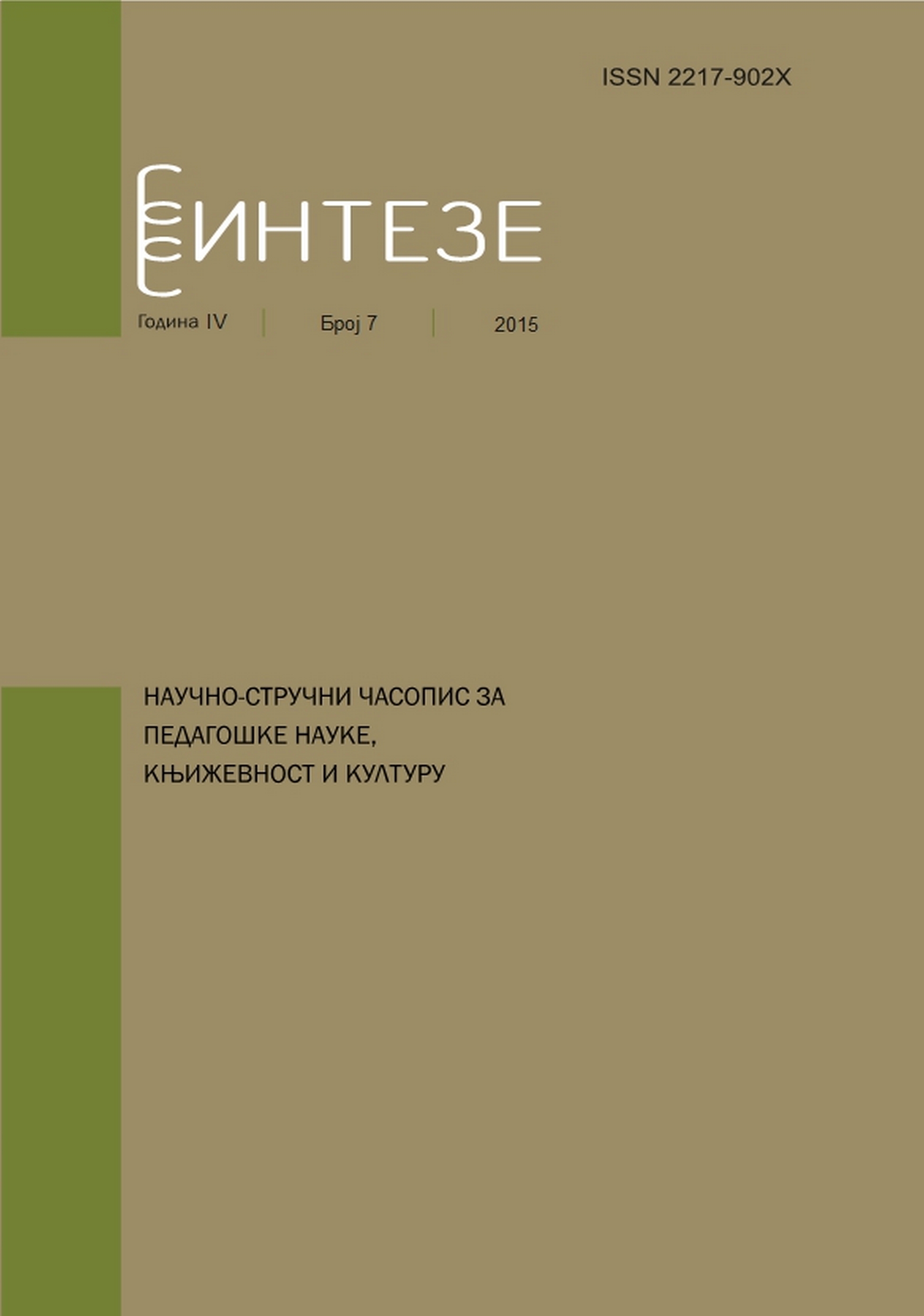Ausubel’s understanding of concept development
Abstract
This paper presents one of relatively new cognitivistic learning and cognition theories – the theory by American psychologist David Ausubel. We consider this theory to be very usable for teaching beginners or for cognition process. It is of utmost importance that first or elementary concepts concerning natural and social phenomena a pupil aquires need to be accurate, understandable and properly connected in a cause-effect sequence of conceptual systems so that items of knowledge aquired can be stable and usable.
For correct understanding of Ausubel’s claims concerning processes and procedures involved in the acquisition of elementary concepts, which is central to this investigation, it is necessary to address problems and questions concerning the following: the process of aquisition or construction of first concepts; how to base verbal learning; how is subsuming achieved, that is connecting of new and previously acquired concepts; what is the relation of this theory with other cognitivistic theories of learning, and, finally, what are critical views or evalutions which can make this theory truly productive in relation to teaching.References
Andrilović, V. i M., Čudina (1985). Psihologija odgoja i obrazovanja. Zagreb: Školska knjiga.
Ausubel, D. P., (1962). „А subsumption teory of meainingful verbal learning and retention”. The Journal of General Psychology, 66, 213-244.
Ausubel, D. P., (1963). The psychology of meaningful verbal learning. New York: Grune & Stratton.
Аusubel, D. P. & Robinson, FD. G. (1969). School learning; an introduction to educational psychology. New York: Holt, Rinehart and Winston.
Ausubel, D. P., Novak, J.D., i Hanesian. H., (1978). Educational psychology: A cognitive view (2nd ed.). New York: Holt, Rinehart and Winston.
Ausubel, D. P., (2000). The Acquisition and Retention of Knowledge Cognitive View. Dordrecht/Boston/ London/ Kluwer Academic Publishers.
Благданић, С. (2006). Мреже појмова као фактор подстицања квалитетније комуникације у настави природе и друштва. Развијањe комуникационих компетенција. Педагошки факултет Јагодина, стр. 603–611.
Благданић, С. (2008). Методичка ефикасност мреже појмова. Беогрaд: Учитељски факултет.
Buzan, T. i Buzan, B. (1999). Mape uma, Briljantno razmišljanje. Beograd: Finesa.
Вилотијевић, М. (1999). Дидактика 2. Београд: Учитељски факултет.
Јанковић, А. (2012). Утицај информационо-комуникационе технологије на постигнућа ученика у настави природе и друштва: Докторска дисертација Универезитету у Крагујевцу, Учитељски факултет у Ужицу.
Јовановић-Илић, М. (1970). Улога вежбања структурисања наставног градива у развоју споосбности учења. Београд: Научна књига.
Kinchin, I. M., Hay, D. B., & Adams, A. (2000). How a qualitative approach to concept map analysis can be used to aid learning by illustrating patterns of conceptual development. Educational research, 42(1), 43-57.
Jukić, S. (1995). Učenje učenja u nastavi. Beograd: Učiteljski fakultet.
Mayer, R. E. (2009). Multimedia learning. Cambridge university press.
Шарановић–Божановић, Н., Милановић–Наход С. (2002). Знање и наставни програм. Зборник Института за педагошк истраживања у Београду 34, стр. 65–78.
Novak, J. D., & Cañas, A. J. (2008). The Theory Underlying Concept Maps and How to Construct and Use Them. Преузето 07. 03. 2015., од http://cmap.ihmc.us/docs/theory-of-concept-maps
Autori koji objavljuju u ovom časopisu pristaju na sledeće uslove:
- Autori zadržavaju autorska prava i pružaju časopisu pravo prvog objavljivanja rada i licenciraju ga "Creative Commons Attribution licencom" koja omogućava drugima da dele rad, uz uslov navođenja autorstva i izvornog objavljivanja u ovom časopisu.
- Autori mogu izraditi zasebne, ugovorne aranžmane za neekskluzivnu distribuciju članka objavljenog u časopisu (npr. postavljanje u institucionalni repozitorijum ili objavljivanje u knjizi), uz navođenje da je članak izvorno objavljen u ovom časopisu.
- Autorima je dozvoljeno i podstiču se da postave objavljeni članak onlajn (npr. u institucionalni repozitorijum ili na svoju internet stranicu) pre ili tokom postupka prijave rukopisa, s obzirom da takav postupak može voditi produktivnoj razmeni ideja i ranijoj i većoj citiranosti objavljenog članka (Vidi Efekti otvorenog pristupa).

